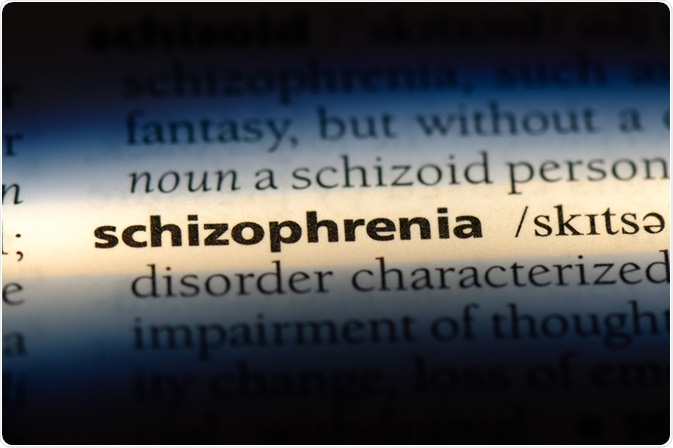Schizophrenia is a chronic mental health disorder that causes people to think, feel and perceive the world differently from the general population. It is characterized by episodes of psychosis, usually with hallucinations or delusions.
 Image Credit: Casimiro PT/Shutterstock.com
Image Credit: Casimiro PT/Shutterstock.com
The overall lifetime prevalence is estimated to be approximately 1% worldwide, although some studies claim it is much lower reporting rates of 0.4%. People with schizophrenia have a higher risk of mortality due to increased risk of other health conditions and suicide.
Schizophrenia usually presents in teenage or young adult years and affects females and males equally. It is common for the initial years following diagnosis to be difficult to cope with, but relative stability is usually reached after this time. However, most patients will never return to the pre-disease state.
People with schizophrenia may experience a range of symptoms, which can be broadly classified as positive, negative, cognitive, and mood symptoms.
Symptoms
- Positive symptoms include signs of psychosis such as hallucinations and delusions. Disorganization of speech and behavior are also signs of positive symptoms.
- Negative symptoms include decreased emotions, speech, interest, and drive towards goals.
- Cognitive symptoms include memory and attention deficits, lack of organization, and difficulty in relationships.
- Mood symptoms include altered emotions and often involve depression.
Risk Factors
Although there are no specific genes known to increase the risk of schizophrenia, it often runs in families and is thought to have a genetic link. People with a sibling with schizophrenia are more likely to be affected, and this risk is exaggerated in identical twins with the same genes.
Additionally, people who were subject to birth complications, such as low birth weight and pre-term birth, are more likely to suffer from schizophrenia. This is thought to be due to changes in the formation of the brain at this time that later affect brain processes and the risk of schizophrenia.
Additionally, the structure of the brain has been found to have slight differentiations in people with schizophrenia. Of particular note, neurotransmitters that are responsible for carrying messages in the brain such as dopamine and glutamate are thought to be involved in the process. Substance abuse, which is known to affect the structure and function of the brain, has also been associated with the condition.
It appears that some individuals are more likely to be affected by schizophrenia due to the specific risk factors and the initial psychotic episode results when faced with a particularly stressful situation that triggers the condition.
What is schizophrenia? - Anees Bahji
Medical Management
The first-line treatment for people with schizophrenia is an antipsychotic medication. There are several different drugs in this class and the individual choice may be selected according to the particular patient.
It usually takes a few weeks for the full effect to become evident and if the effect is not sufficient after this time, the medication should be withdrawn and substituted for an alternative option in the same class.
It is common for patients to experience other mental health conditions, such as depression, and they may require medication to improve these symptoms as well. In this case, it is important to choose medications that do not interfere with each other or to adjust the dose accordingly.
Psychotherapy
In addition to pharmacotherapy, it is essential that patients have a strong support network to help them deal with the stresses involved with the condition and avoid subsequent psychotic episodes.
Cognitive behavior therapy involves a series of therapy sessions that focus on the particular psychological issues and stresses the individual is facing and developing behavioral strategies to overcome them. This offers a considerable benefit for the patient and should always be offered in addition to pharmacotherapy.
In addition to individual therapy sessions, family intervention can offer a notable benefit for patients with schizophrenia. The support network of the individual is important to help them cope with stress, and this can be taxing of the family members and carers of the patients. A family intervention involves everyone who is involved in the patient care and aims to help each individual cope with the situation.
References
Further Reading
Last Updated: Sep 10, 2021